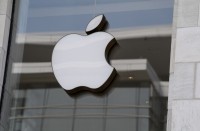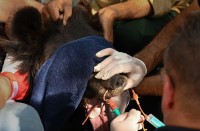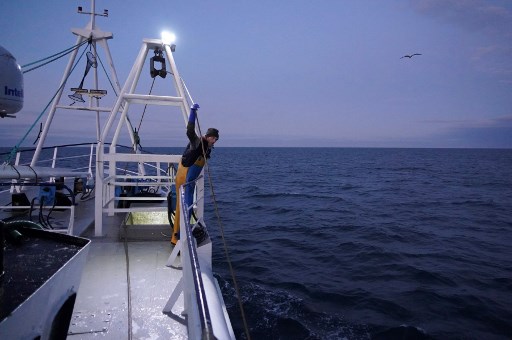
NORTH SHIELDS, United Kingdom (AFP) – Roland JACKSON / William EDWARDS
Just before dawn, the Good Fellowship trawler casts its nets deep into the North Sea’s cold swirling waters, fishing for prawns off England’s northeast coast.
Britain finally departs the European Union on Friday but remains bound by the bloc’s Common Fisheries Policy (CFP) until the end of a transition period on December 31.
The Good Fellowship’s captain, David Shiel, is cautiously hopeful that Brexit can help reverse decades of decline in the UK’s once-booming fishing industry that has been blamed partly on EU membership allowing foreign vessels to fish in British waters.
In pitch blackness, the small vessel embarks upon a day-long trip from the port town of North Shields — situated at the mouth of the River Tyne — to fish off the coast of England’s northeastern region, almost all of which voted for Brexit.
As dawn breaks, the three-man crew shoots heavy nets into the dark coastal waters eight miles (13 kilometres) out to sea.
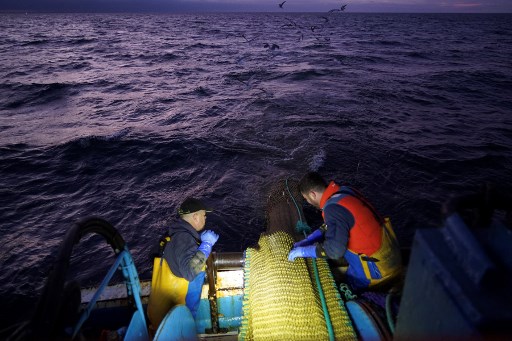
And as the nets scrape along the bottom of the seabed, scooping up prawns largely destined for dining tables and restaurants in Italy, France and Spain, Shiel says the time has come for the UK to take back control for its own fishing fleet.
“Our own fleet surely has to come first,” he tells AFP, after steering his ship out of North Shields — whose historic Fish Quay dating back to the 13th century is the base for 33 vessels and around 350 fishermen.
Key Brexit role
While fishing accounts for less than 0.1 percent of UK economic output, it played a key role in the 2016 referendum in favour of exiting the EU.
The CFP permits European Union vessels equal access to the fishing grounds of other member states, provided that they comply with quotas.
Shiel, 52, who lives in the northeast town of Seahouses, argues that this permits rival EU fishermen to catch an unfair amount of fish from UK waters.
Following Brexit, British Prime Minister Boris Johnson’s Conservative government is planning legislation to exclude foreign vessels.
However, a Brussels-based EU diplomat told AFP that finding an accord on fishing access to British waters was a prerequisite for striking an overall deal on Britain’s new trade relationship with the bloc.
Indeed, many UK trawlermen believe they could be sacrificed for Britain winning deals for its key service sectors, led by London’s financial industry.
“We’ve got to be looking at a bigger picture to get better sustainable fishing for our own country,” insists Shiel.
“The trouble is once again we’ve been promised and promised and at the last minute they’ll sell you down the river, because they’ve got no spine — any of them,” he adds in reference to Britain’s politicians.
EU boats take roughly six times more fish from UK waters than British boats do from EU waters.
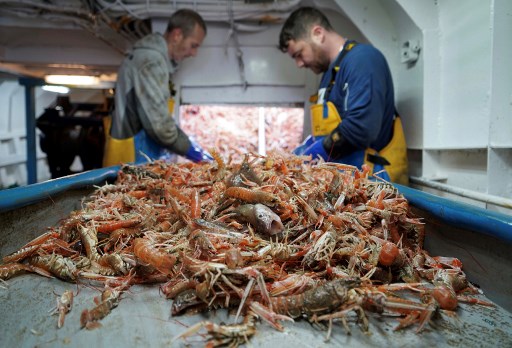
At the same time, 90 percent of the fish caught off North Shields by British boats are prawns for export — with around two-thirds going to France, Spain and Italy — according to Andy Dixon, who manages Caley Fisheries’ North Shields division.
Britain meanwhile tends to import most of the fish that it consumes — including tuna, cod and haddock.
‘Fine balance’
“There needs to be a fine balance made” by the UK government to deliver both Brexit and continued market access to Britain’s exported fish, Dixon tells AFP after hosting the port’s daily fish market auction.
Dixon hopes Johnson can be trusted not to betray UK fishermen.
“We have to trust him, really. You just hope we don’t get sold down the river. It’s happened before,” he says.
“It’s a big, big thing that fishing is on the agenda. We are an island. We are surrounded by sea. It’s all our water.”
Barrie Deas, head of the UK body the National Federation of Fishermen’s Organisations, insisted that the British fishermen had felt “betrayed” by the granting of equal EU access in 1973.
“That was seen as a betrayal because the fishing industry was sacrificed for other national political and economic objectives,” said Deas.
Back at the Fish Quay, veteran trawlerman Thomas Glenny says he rues the day that the UK joined the bloc, adding that he was not hopeful of a brighter future.
“I just hope it does work out for us — but it won’t.”
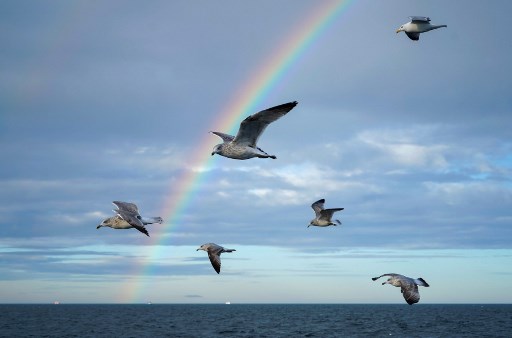
© Agence France-Presse

